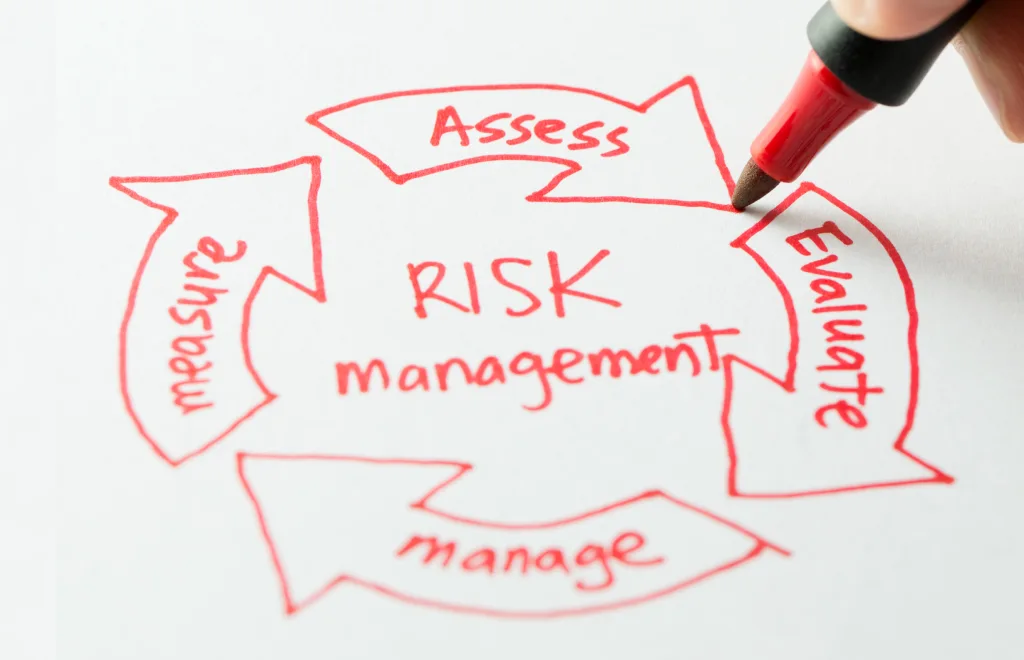What Are 8 Key Project Management Skills?
In today’s fast-paced business world, project management skills have become increasingly important for organizations looking to stay competitive and achieve their goals. Whether you’re managing a small team or leading a large-scale project, having the right project management skills can make all the difference in the success of your project.
In this blog post, we’ll take a closer look at project management skills and why they’re essential. We’ll explore some examples of these skills in action and then dive into the top skills a project manager needs to succeed. Whether you’re a seasoned project manager looking to refine your skills or just starting in your career, this post will provide valuable insights into what it takes to be an effective project manager.

Free eBook: The Project Manager’s Handbook on Time Tracking
Get your step-by-step guide to master your time tracking skills
What are project management skills?
Project management skills are the competencies, traits, and characteristics a project manager needs to coordinate a project from start to finish effectively.
As a project manager, you need to plan and control many areas of a project from start to finish. To do so, you need a set of personality traits, soft skills, and technical or hard skills.
To better understand what they are, here’s a brief explanation of each:
- Hard Skills: hard skills, also known as technical skills, can be learned through education or training.
- Soft Skills: soft skills are all those which are not learned through formal education or training. Some of these are part of someone’s personality or are developed through life.
Even though some project management skills can come more naturally for some people, such as soft skills for example, there are others that can be learned and developed so that someone becomes a stronger project manager and can help their team achieve their goals.
Some project management skills include organization, empathy, time management, clear communication, leadership, etc.
Examples of project management skills and their importance
As just mentioned, there are hard and soft skills you can develop to improve your management and collaboration skills.
Some of these skills might not apply to you, while others might be things you already have in your personality.
Let’s break down some of the most importantly soft and hard skills a successful project manager should have.

1. Communication
Having excellent and clear communication is super important, as you must deal with many different people: team members, people from other departments, leadership, clients, and so on.
As a project manager, when you have so many people to manage, communication is critical to working smoothly. For work to flow, you need to make sure that everyone is on the same page, working towards the same goals, and all are kept in the loop about any changes or issues.
As miscommunications are common when you’re working with a group of people, this is a key project management soft skill to be successful. Learning how to communicate well and avoid problems will make projects run more efficiently and enjoyable.
Improve your communication with the best team communication apps.
2. Time management
Time management and organization skills go hand in hand when you’re a project manager. As you become better at organizing your daily work, you’ll also have a clearer sense of everything on your plate and how long your upcoming tasks and projects will take.
Nevertheless, prioritizing your work is not always easy. To improve time management and reduce procrastination, try creating a task list and prioritize the tasks. Once you have a clearer idea of which tasks are more urgent, you can take care of them first, and make sure nothing gets left behind.

Free eBook: The Project Manager’s Handbook on Time Tracking
Get your step-by-step guide to master your time tracking skills
Get to know the best prioritization methods to organize your workload.
3. Empathy
Empathy is one of the most powerful soft skills a project manager can have.
As a project manager, empathy empowers you to engage with everyone you work with more compassionately and productively, making everything a lot better.
Being empathetic helps you to be a more insightful leader and create a more motivational, rewarding business environment for you and your team. Everyone will feel a lot more motivated and therefore be a lot more productive in their work. Because you’re better positioned to understand what drives each individual, you’re also better equipped to help them develop their skills and reach their goals.
Empathy also has a super important role in conflict resolution, mainly when used alongside excellent communication skills, as we mentioned before.
Empathy will make you a much better mediator and help your team members feel more respected and valued.
4. Problem-solving
Problem-solving and empathy really do work together. Problem-solving skills allow you to approach a problem and, ultimately, solve it.
Developing problem-solving skills isn’t about always having the “right” answer to every problem but methodically working towards a successful solution.

5. Leadership
Leadership will look different to different people. It’s not something that fits all people the same way. What it means to be a good leader can vary depending on the industry, team, and individual team members, as well as the person itself.
We believe a good leader needs to incorporate many of the project management skills we mention in this article. You need to be able to communicate the project goal clearly, relate to your team with empathy, and steer the project through rocky patches. Still, you also need that extra thing that not many people have, that spark of something that can ignite inspiration in the rest of the team: leadership.
You can learn some strategies to improve your leadership skills with the best project management courses.

6. Organization
For most project managers, the organization is the most intimidating soft skill. You might think the organization is either something you “have” or “don’t have.” But, like every other project management skill in this article, you can develop and learn how to improve your project manager skills.
From planning out the project in detail to everyday things like personal time management that allow you to get your day-to-day work done and be in the right place at the right time, everything must be as structured as possible to work efficiently.
As a project manager, you’re not just responsible for keeping yourself organized and managing your own work but everyone else’s.

Free eBook: The Project Manager’s Handbook on Time Tracking
Get your step-by-step guide to master your time tracking skills
Get to know the top productivity planners that will increase your organizational skills.
7. Writing skills
When you’re starting on a new project, the briefing is what outlines your general project goals and every step you will take to get there. A briefing is a helpful North Star to guide planning.
It´s extremely important to remember that a briefing is a living document, meaning that it can and should be changed and updated if there are any adjustments to the project.
As you develop your project plan and get input from stakeholders, you can adapt and update your project brief list of your project stakeholders and their responsibilities. Other relevant documentation or files that might be necessary (such as a project management checklist), and any additional high-level information your team might need to get their work done.
8. Planning skills
As the name says, project manager. A manager needs to plan and this is a role and responsibility of any project manager.
At its core, a project plan is an outline of the key elements your project needs to succeed. Typically, a project plan will include some of these things:
- Project goals
- Success metrics
- Stakeholders and roles
- Project budget
- Project milestones and deliverables
- Timeline
- Project management communication plan
Most likely, some of these things we just mentioned, like your goals or milestones, might already be defined in your project roadmap. However, your project plan is where all these elements come together to create cohesive and consistent work.

9. Risk management
Every project has risks. It’s inevitable: someone won’t be available when you need them, or delayed approval from a client will set your timeline back a few days or even weeks.
As a project manager, you are responsible for navigating risks and anticipating them so you can avoid them altogether (or at least try to prepare for them adequately).
10. Budgeting abilities
This point is crucial. For projects to be successful, they mustn’t come in way over the initial budget.
As a project manager, you need to be aware that there are financial constraints you need to work within. Therefore, you need to use your budgeting and financial management skills to deliver the best project possible within those limitations.
Learn everything about project budgeting in our comprehensive guide.
11. Tracking and monitoring
As a project manager, you should not just aim to deliver a project but to deliver a successful project. Therefore, it’s super important to check everything every step of the way and stay on top of how things are progressing.
You need to use your performance tracking and monitoring skills to ensure projects are running according to plan and supporting broader business goals.

12. Project management methodologies
There are over eight thousand project management methodologies to choose from. From Agile to Waterfall, numerous project management methodologies and approaches can show you how to improve your project management skills. These outline specific principles for overseeing and completing projects.
Depending on your skills, the structure of the workplace, and the project teams you’ll work with, there are many options for you to choose from. Experienced project managers are familiar with many of these methodologies and can determine which ones are the best fit for their specific teams and projects.

Free eBook: The Project Manager’s Handbook on Time Tracking
Get your step-by-step guide to master your time tracking skills
13. Subject matter expertise
This is so important. Project managers work in various industries, from construction to IT to marketing and everything in between. Although it is unnecessary in many cases, we believe it is essential that project managers have at least a familiarity with the industry and the types of projects they’re managing.
With a certain level of expertise, it will help them to accurately estimate project timelines, risks, costs, and understand their team’s pains, and resource requirements.
Project cost tracking
What it project cost tracking? Why is it important? How to do it? Find all the answers in our guide.
14. Quality management
To be a successful project manager, you can’t just ignore the quality of the work your team is producing. If there’s little attention to quality, you’re not being a good manager. You’re just doing what anyone else could. But a successful project manager will pay close attention to the project’s standards to ensure the final product meets or exceeds expectations.
As a project manager, you will closely monitor a project’s progress to ensure that all of the different steps and deliverables meet the expected quality standards. If and when you encounter any sort of problem, you must take the appropriate corrective steps on the spot rather than doing a lot of rework at the end, which could delay the project.
6 Top skills for a project manager
Now that you really understand the difference between soft and hard skills and which are more important in each category, how can you know which ones, among all of them, are the top skills for a project manager?
Here’s our list of the top 6 skills for any project manager:
1. Effective communication
From start to finish on any project, whether it’s project kick-offs or stakeholder meetings, all project managers constantly communicate with many different people. Therefore, project managers must have excellent communication skills to lead projects to completion successfully.
On the other hand, poor communication can lead to inefficiency, missed deadlines, and misunderstandings.
To mitigate the risk of this kind of thing happening, project managers should prioritize learning how to communicate effectively. This includes knowing how to approach people, create meaningful relationships with co-workers, and articulate a clearly established vision of what you wish to achieve.

2. Negotiation
From managing resources to engaging suppliers to dealing with team conflict, you will have to be involved in negotiations as a PM constantly. An effective project manager is often a pro negotiator who keeps everyone involved and working toward a unified goal.
It’s pretty much unavoidable to have discussions about budgets, scope creep, resources, and timelines, and it can quickly become adversarial if not handled sensitively.
As a savvy project manager, you will instinctively know when and how to apply persuasive techniques to encourage solutions and avoid damaging workplace relationships.
Depending on the situation at hand, you may choose to apply different negotiation styles, and it’s essential to know which will be the most effective in each given scenario.
If you want to develop your PM skills, then you might be interested in the best PMP certification courses.

3. Scheduling and time management
As a project manager, you must know that scheduling is a core facet of the role. However, if you’re adept at juggling multiple schedules and can anticipate roadblocks before they occur, you’ll increase your chances of delivering successful projects.
With effective time management, you get greater clarity, greater capability, and greater confidence in your work. When you are clear on the best use of your time, you become more focused and productive and more successful. Good time management helps you achieve bigger goals, reduces procrastination, and increases everyone’s productivity.
TIP: Read our blog if you need help handling scheduling conflicts.
4. Leadership
This is probably one of the most important skills. Even when everything else is failing, thanks to effective coaching, guidance, and team motivation, you can help move a project forward and deliver a positive outcome.
Strong leaders also promote a productive work environment by communicating regularly with their teams and helping their employees develop important project management skills themselves.
What can also make your team work more efficiently is when your employees feel they are making a meaningful contribution to the project. You can help team members feel impactful by learning how to delegate tasks, provide constructive feedback, set goals, and evaluate individual and team performance.
Be sure to recognize the achievements of your team members so they know you value their contributions, as well. Combining these elements with your own unique leadership style will help you to manage projects while also becoming a more effective leader successfully.
Learn how to lead a team in our detailed guide.
5. Technical expertise
Even though soft skills are very important, to be a successful project manager, you must possess the technical know-how to move projects toward completion.
Project managers who can “speak the language” of their organization’s subject matter experts will be able to communicate more effectively with their teams and have a better understanding of a project’s inherent risks and potential problems.
Additionally, a useful understanding of project management software can positively impact your work.
Project management software is frequently used to plan, organize, and communicate with teammates while simultaneously managing resources, budgets, and schedules.
In today’s world, this means project managers must also constantly evolve, learning how to leverage the newest technologies available to lead a project to completion successfully.
TIP: Get to know the best project management tools that will increase your productivity.
6. Critical thinking and problem-solving
While critical thinking is a skill all professionals could benefit from, it is particularly useful if you’re a project manager. Rather than being reactive, the best project managers are proactive and use their critical thinking skills to navigate through tricky or ambiguous projects.
By remaining objective, analyzing the facts, and evaluating options without bias, project managers can solve complex problems for organizations while delivering results on time and within budget.
FAQS
What skills do you need for project management?
To be a successful project manager, you need a good mix of soft skills and hard skills: communication, organization, time management, leadership, critical thinking, problem-solving, risk management, etc.
Is project management a soft skill?
No, project management isn’t a soft skill because, through education and training, project managers can develop their skills.
Conclusion
In conclusion, project management skills are a critical component of success in any project, no matter the size or complexity.
By developing and honing these skills, project managers can ensure that their projects are completed on time, within budget, and to the satisfaction of all stakeholders.
From communication and leadership to risk management and problem-solving, the top project management skills require a combination of technical expertise and soft skills.
As a project manager, it is essential to continuously improve and develop your project management skills to stay ahead of the curve in an increasingly competitive business environment.
By implementing the skills outlined in this post, project managers can elevate their performance and drive success for their teams and organizations.
You might be interested in: